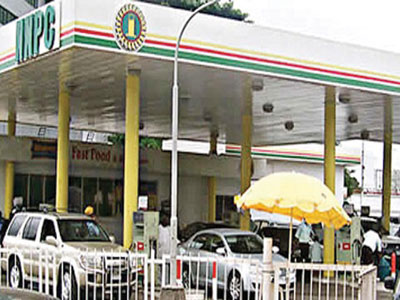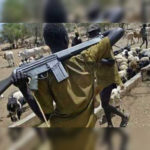The DPR issues licences and approvals for siting of retail outlet anywhere in Nigeria including the border towns which had been detected as transit routes for smugglers. Industry experts warned that unless DPR moved urgently to clamp down on illegal filling stations littered around residential areas in the country, lives and property would continue to be in danger.
This is because more than 200 illegal filling stations are scattered all over the nation, according to Sunday Tribune findings.
However, efforts to speak with the spokesman of DPR, Mr. Paul Osu, proved abortive as calls and messages sent to his line were not answered.
The guidelines for operating a filling station include that operators of filling stations follow well-laid-down rules and regulations designed to be tolerably environmental friendly.
The guidelines, which seem cumbersome include: suitability inspection by DPR official; approval to construct; storage and licence to operate a petrol filling station and take-over of petrol filling station permit, in case of take-over.
However, due to the cumbersome process, it was observed that many owners of these filling stations sited them indiscriminately with little pressure from the DPR to follow due process.
The shocking discovery of 2201 filling stations across border towns was corroborated by the Nigerian National Petroleum Corporation (NNPC) that an unprecedented cross-border smuggling of petrol to neighbouring countries had become alarming.
One of the reasons fuel smuggling remained lucrative was because Nigeria was the only country among its West African neighbours that subsidised petrol.
NNPC spent over $5.8 billion to import petrol since December 2017 and it is losing N744 million per day to fuel subsidy.
Part of the reasons to situate filling station was that the functionafirefightingng gadgets must be kept handy and at alert; a station Manager/Supervisor must always beat the station; available alternative source of power to operate products pumps and adequate illumination of the station;ensure that vehicle engines are switched off before fueling and products in tanker trucks to be discharged into storage tanks shall have to be allowed to settle for at least two hours while in the station before the discharge.
It would be observed that most of these guidelines were not observed before, during and after situating the filling stations. And many people living around the site may be exposed to one danger or the other considering the highly inflammable nature of the products.
Stakeholders had also blamed lack of prosecuting powers for the DPR for its inefficiencies in adequately regulating the oil and gas sector.
Another factor why DPR seems helpless was that it lacked adequate personnel to supervise the entire oil and gas sector from upstream, midstream and downstream.
The Group Managing Director of the NNPC, Dr Maikanti Baru, had revealed recently that a detailed study conducted by NNPC discovered that fuel stations sited at border towns were aiding activities of fuel smugglers.






